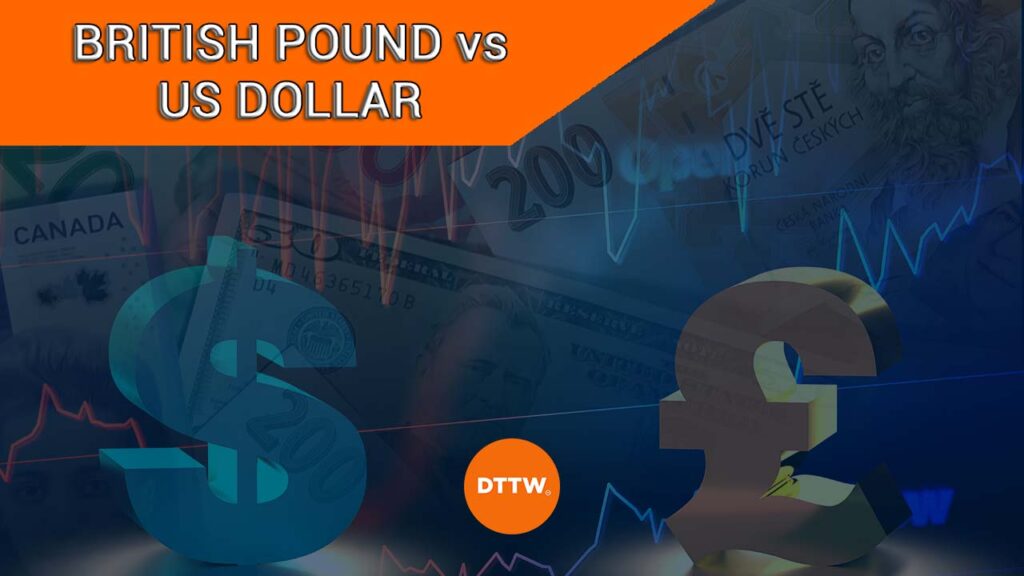For centuries, the British pound has held a nominal advantage over the US dollar. While it is something that has simply been a reality across everyone’s lifetime, it’s important to understand the reasons why the British pound is stronger than the US dollar.
We look at this, as well as the implications of this relationship between the two currencies moving forward.
The History of the British Pound and US Dollar
The British pound has been stronger than the US dollar since before modern currency markets began.
Wind back the clock more than 100 years, and the British pound was the common medium of foreign exchange. Before the World Wars, this was the currency that most other countries used as their point of reference, and as a result, it fetched a premium over them.
At one stage before World War II, the British pound was worth more than $5—simply because at this point in history, Britain was the dominant global economy.
However, following World War II, the United States began to evolve into the global superpower that it is today.
As a result, a shift occurred that saw the US dollar become the main form of foreign exchange for other countries, superseding the British pound. Today, more than 60% of FOREX holdings are in US dollars.


Understanding Nominal vs Relative Strength in Currency
This supplanting of the British pound by the US dollar has led to a steady slide in the relative strength of the British pound in the equity markets.
Beginning at a high above $5, over the past decades the British pound has slid to around $1.20 at the start of 2023. With this decline, it’s important to understand the difference between nominal and relative strength.
While the British pound is nominally stronger than the US dollar—it commands a factor of more than one—it is not necessarily always relatively strong.
Related » How to Trade the GBPUSD
There’s an argument to be made that the US dollar is in fact stronger than the British pound in a relative sense, given that the overarching trend over the past two decades has been a weakening of the British pound.
In fact, as a result, many punters are looking to trade the Pound against other currencies instead. One example of this is the increased popularity of the Pound to Canadian dollar market. Part of this is because it’s easy to learn how to trade GBP/CAD, and often produces a better return.
The Impact of Brexit on the Future of the Pound
Some market analysts are speculating that with the impact of Brexit and unfavorable interest rates, the Pound will soon give up its nominal advantage over the US dollar.
When Brexit occurred in 2020, the British pound dropped from within the $1.40 to $1.70 range, all the way to $1.20 overnight. The currency relationship has not recovered since then, with day traders taking advantage of swings as low as $1.10 recently.
While the British pound dropping below $1.00 would certainly be historic, it would have little impact on macroeconomics. What matters is whether or not the British Pound is also weakening against other currencies, and the US dollar strengthening.
